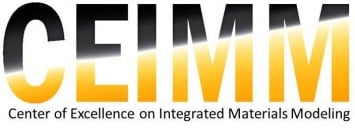Space Systems, Space Science and Aerospace
Space Systems Engineering
Offered through Johns Hopkins Engineering for Professionals, which administers part-time and online graduate studies for the Whiting School of Engineering, the master’s degree in Space Systems Engineering offers eligible students the tools they need to become technical leaders within the competitive aerospace industry.
Courses are available online or through a virtual live classroom model, with the exception of two laboratory courses offered on the Johns Hopkins’ Homewood campus on weekends. The curriculum is designed to instill in students a deep understanding of space systems quality assurance and its implementation, while developing spacecraft and space-borne sensors on time. As part of the program, students will work alongside top experts in the field, including faculty at the world-renowned Johns Hopkins Applied Physics Laboratory and the Henry A. Rowland Department of Astronomy and Physics at Johns Hopkins’ Krieger School of Arts and Sciences.
Aerospace Concentration
A student may specialize in Aerospace Engineering once a solid background in the fundamentals of Mechanical Engineering has been developed through the core Mechanical Engineering or Engineering Mechanics courses. This Concentration develops and requires knowledge and background in several fields including advanced dynamics, flight mechanics, propulsion, aerospace materials and structures, signal processing, control systems, astrophysics and space systems.
Minor in Space Science and Engineering
Offered through both the Whiting School of Engineering and the Krieger School of Arts and Sciences, the minor in space science and engineering is designed to prepare students to enter careers in the aerospace industry or professional laboratories, as well as to enter graduate programs.
The minor offers a customized series of courses that allow students to shape programs to fit their own needs and interests, and gives them experience working in the kind of multidisciplinary teams that are typical in space science and engineering. Each student must work in a space-related internship of some kind, providing real-world experience and allowing the student to develop valuable contacts in the field.

